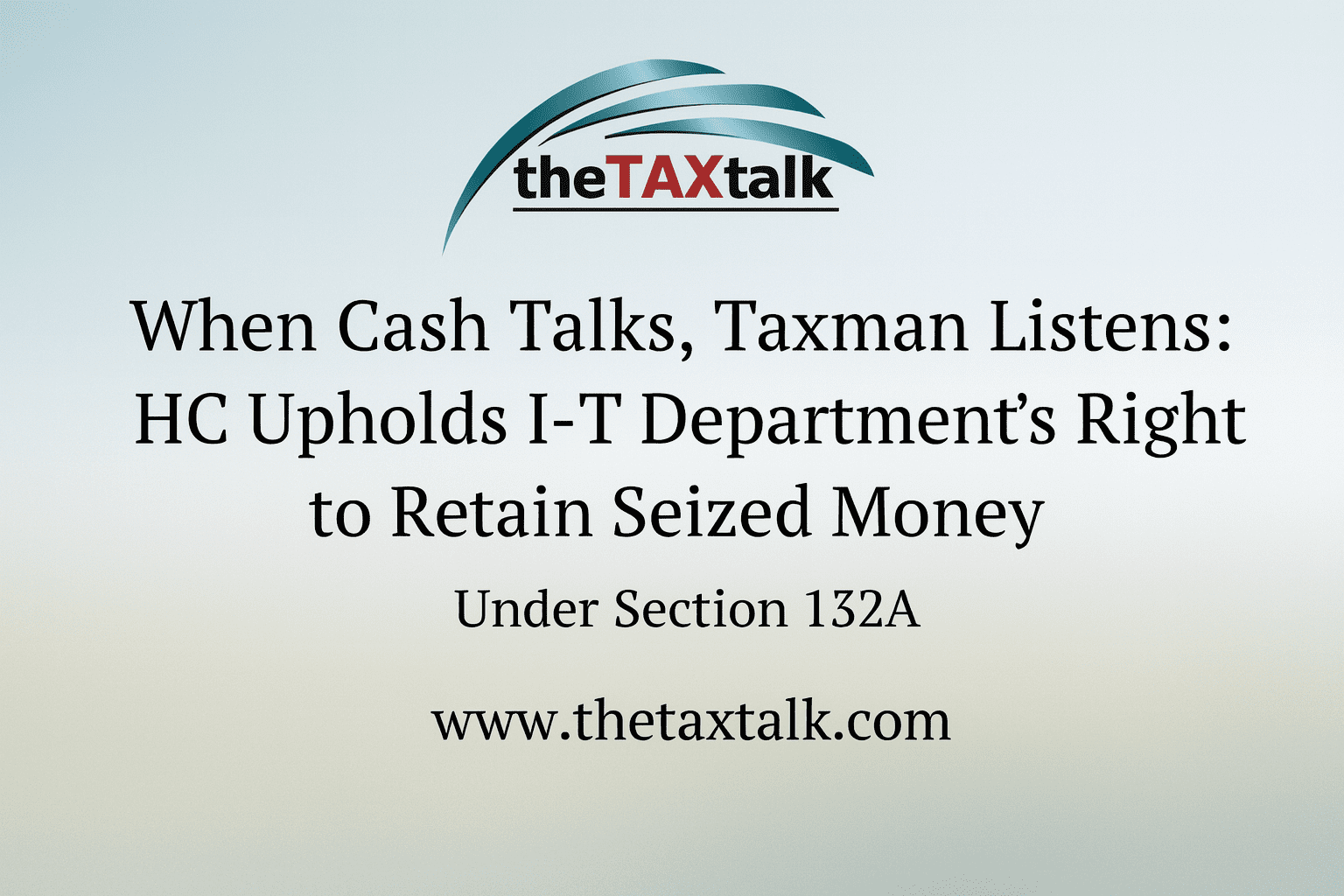![]()
When Cash Talks, Taxman Listens: HC Upholds I-T Department’s Right to Retain Seized Money Under Section 132A
In a significant ruling reinforcing the Income Tax Department’s powers under the Income Tax Act, the Gujarat High Court has upheld the department’s statutory right to requisition and retain seized cash under Section 132A during the pendency of income-tax proceedings.
The case stems from an FIR filed for the theft of gold and silver ornaments worth ₹90,000 — which later snowballed into a massive ₹1.40 crore cash heist. While police investigations led to the recovery of over ₹60 lakh and a car bought from the stolen amount, the Income Tax Department stepped in when the complainant failed to explain the source of ₹35.28 lakh during interrogation. And as tax officers know well, unexplained cash often carries a heavy tax shadow.
Armed with Section 132A(1)(c), the department moved to requisition the amount. But complications arose when the Magistrate allowed the sum to be deposited in a fixed deposit in the complainant’s name. Challenging this, the I-T Department argued for its right to safeguard the amount in its own P.D. (Provisional Deposit) Account during investigation and assessment.
The High Court agreed with the department’s stand, noting that the earlier orders of the lower courts were legally unsustainable. The court not only quashed the Magistrate’s order dated 18.10.2022 and the Sessions Court order dated 10.08.2023, but also directed the department to deposit the disputed ₹35.28 lakh into its P.D. Account within four weeks — reaffirming the department’s legal footing in dealing with such matters.
The court observed that the Income Tax Department’s powers under Section 132A are not merely ornamental. They play a critical role in preventing tax evasion and protecting revenue interest, especially when large sums of unaccounted cash surface during criminal investigations.
Key Takeaways:
- The I-T Department can requisition and retain seized cash during pending tax proceedings under Section 132A.
- Courts must not interfere with the department’s statutory process unless there’s evidence of abuse of power.
- Fixed deposit of such funds should be in the name of the department, not the assessee or complainant, to protect public revenue.
In a world where black money often travels in car trunks and secret cupboards, this ruling is a green signal to the I-T sleuths — “If it’s unexplained, you can hold it — but handle it by the book.”
|
|


